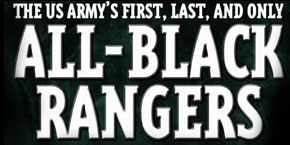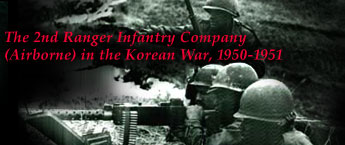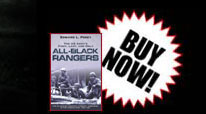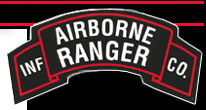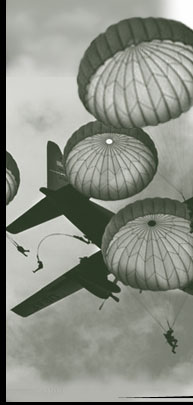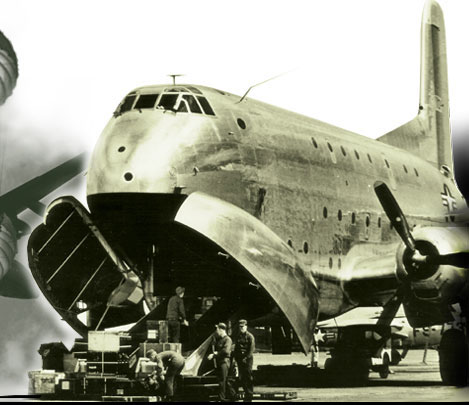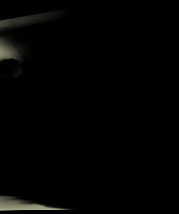|
Author Biography
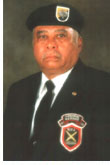 Master Sergeant (Ret) Edward L. Posey joined the US Army in 1947. After serving with Company L, 3rd Battalion, 505th Airborne Infantry Regiment, he volunteered for airborne training with the Rangers in 1950 and served with distinction in the Korean War (where he was wounded). Master Sergeant (Ret) Edward L. Posey joined the US Army in 1947. After serving with Company L, 3rd Battalion, 505th Airborne Infantry Regiment, he volunteered for airborne training with the Rangers in 1950 and served with distinction in the Korean War (where he was wounded).
Sergeant Posey retired from the service in 1969. In 2002, he was inducted in the Ranger Hall of Fame for his dedication to duty and distinguished military career.
Author Interview
An interview with Edward L. Posey, author of The US Army's First, Last, and Only All-Black Rangers: The 2d Ranger Infantry Company (Airborne) in the Korean War, 1950-1951.
SB: What is it like to see the story of the First, Last, and Only All-Black Rangers finally in book form?
ELP: This book is a long overdue recognition of the Black Rangers. It explains the self pride and bravery shown by the Black Soldiers under adverse conditions. The book is also a tribute to those courageous Black Soldiers who paved the way for patriots, regardless of color or gender, to serve their country. It includes maps, photographs, illustrations, chronology, appendixes, glossary, unit roster, list of commendations, awards, citations, dates of campaigns and engagements, and a bibliography. It reveals how the Korean War Army experiences affected the Black Rangers for the rest of their lives and how they, in turn, transformed the US military forever.
SB: What was it like to work on this book with other members of the 2d Ranger Infantry Company (Airborne)?
ELP: Working on the book with my fellow soldiers was an experience that filled my heart with pride. During the war in Korea we complained to each other, but we kept on soldiering. We talked about the winter weather that took a great toll on the soldiers, and surely someone shooting at you (the enemy) was a hardship too! This is the first complete history of this elite all-volunteer Black unit whose members were drawn from the 3d Battalion of the 505th Airborne Infantry Regiment and the 80th Airborne Anti-Aircraft Battalion. Overall, we discussed old times, good and bad.
SB: While researching for the book, were you able to connect with Rangers who you had lost contact with?
ELP: Yes, some of the 2d Rangers who we had not communicated with for years came together, and this brought strong feelings of togetherness to our cause. My account and those of my fellow soldiers interwoven into the book were based on our firsthand experience, official records, interviews with survivors, and other material to produce a rich and noteworthy addition to the literature on the Korean War.
SB: Are you involved in Ranger reunions?
ELP: Yes, I attend the Ranger reunions every year. We have a great time and I always look forward to seeing Rangers who come from around the nation.
SB: Why did you decide to join the military?
ELP: I wanted to see different parts of the world. I also knew that the military would give me the means to help my family and finish my education.
SB: This book has received quite a bit of praise from reviewers. How do you think people will react to reading this history?
ELP: Looking back, I believe it has been a privilege and opportunity to be the product of President Truman's Executive Order 9981 which prescribed equality of treatment and opportunity for all persons in the Armed Services without regard to race, color, religion, or national origin. As a Black Ranger, it was an honor and privilege to serve my country, but sadly it was during a critical time in military history. The Korean War was an experiment in race relations. It was the first war influenced by the Civil Rights Movement and fought after initial desegregation in the United States. As the records of minority soldiers in integrated units show, this experiment proved successful. The Black Rangers, against all odds, accomplished great deeds during these harsh and hard times.
SB: How did you treat the enemy, and how were you treated by them, whether during the battle, after winning the battle, or having lost the battle? What about the enemy you captured or the enemy who captured you?
ELP: The 2d Rangers never abused prisoners as we had seen others do early in our war. They were taken to IPWE stations and left there under someone's control. No one in the 2d Ranger Infantry Company was ever captured.
SB: How do you feel about the medals that you know were won by your unit or individuals but never received?
ELP: Many members of the 2d Ranger Infantry Company served with distinction and never complained about not being awarded medals. We were actually awarded a high number compared to the size of the company. We received nine Silver Stars and twelve Bronze Stars with V device, all for a group of soldiers never numbering over 110 men. Many Purple Heart awards were given and a great number of the injured returned to the company.
SB: What were some highlights of the company's service?
ELP: The battle of Major-ri, a small village where the 2d Rangers defeated the North Koreans but lost most of our men, and the combat parachute jump at Seoul, Musan-ni, which was the first combat jump a United States Ranger Company ever participated in, both come to mind. We achieved our objectives the day of the air assault, 23 March 1951, while suffering relatively light casualties. The unit was awarded the Bronze Arrowhead for our service in this engagement.
SB: What was the company's most difficult mission?
ELP: It was probably the battle for Hill 581. The CCF Spring Offensive began on 22 April 1951. The Rangers, on 29 April, were ordered to move a few miles northwest to occupy and hold a hill outside the village of Chaun-ni. Later during the campaign, on 19 and 20 May, the 2d Rangers participated in the assault on Hill 581. It was a bloody engagement, fought under the umbrella of close artillery support. During the fight for Hill 581, 17 members of the 2d Rangers were awarded the Purple Heart and seven were cited for bravery.
SB: What part did the terrain and weather play on the success of the company's mission?
ELP: The weather and terrain were always a factor. Overcoming them was always the reason for a successful mission.
SB: How are the family members, sons, daughters, and grandchildren reacting to knowing the 2d Ranger Infantry Company (Airborne) story is published?
ELP: The 2d Ranger Company families are overjoyed to know that finally an important part of military history, which has been untold up until now, is in print so Americans and people in other nations can read about the courage and endurance of the all-Black Ranger unit during the Korean War.
SB: Well, thank you for your time Master Sergeant Posey. I know there are a number of people anxious to read this important book.
ELP: Thank you.
|
